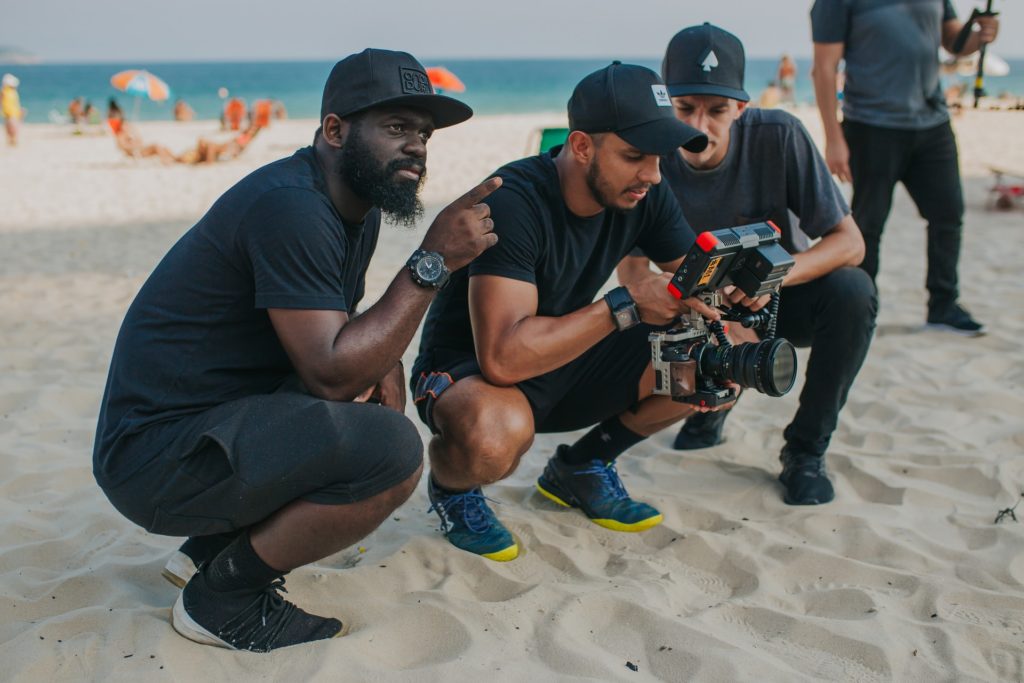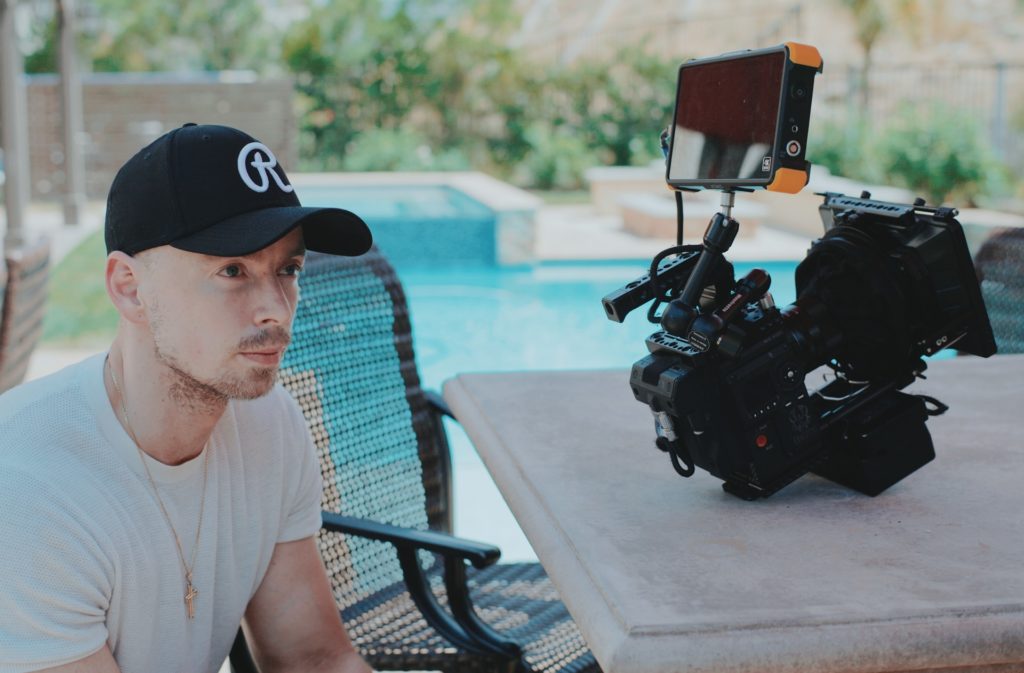Interested in taking a screenwriting course? Great! Not only can a course in screenwriting make you a better writer, it can also make you a better filmmaker.
The goal to tell a compelling and emotionally driven story shouldn’t solely be the job of the screenwriter, but also for the director, cinematographer, editor and many other important crew members working in the production.
If you’re an independent filmmaker who’s hungry to get their screenplay or idea financed and produced, take a look at our funding opportunities to potentially win up to $10,000 in funding and other prizes.
You can also take a look at our previous blog post where we discuss 10 things you can learn from taking a screenwriting course. Whether you’re interested in taking an online screenwriting course or an in-person course at a film school, we will discuss several ways knowledge taken from a screenwriting course can benefit your filmmaking capabilities.
Understanding the Importance of Outlining and Pre-Production

Outlining is the most important step when preparing to write a screenplay. Without a proper outline detailed with character backgrounds, scene structure, locations, themes, plot points, etc., a script will be a million times harder to write and will likely fail in many ways.
It’s important for a writer to think these things through, thoroughly, before beginning a screenplay to avoid stumps and weak elements in the story. This also goes for filmmaking and the pre-production planning that takes place before actual production. Lacking a strong, detailed plan when jumping into the production phase will likely cause you to run into a ton of problems on set.
Learning how to effectively craft a screenplay outline, whether with index cards or several written documents, can greatly improve how you execute pre-production. More specifically, you will likely see major improvement in storyboarding, location scouting, scheduling, and more.
Dialogue and Characterization

Learning how to effectively write dialogue and compelling characters can be a great help on set. If you’re also working as the director, your job is to coach actors and articulate your vision and direction effectively to actors and crew members on set. Learning characterization from a screenwriting course can make your job much easier, specifically when communicating character wants/needs to actors and specific casting options to producers or casting directors.
Spending large sums of time carefully writing and developing characters will give you, the director, a better picture and vision for their character journeys and arcs. Instead of just picking up a script given to you by a writer or producer, you will be working on a script you took time to carefully craft and perfect.
Let’s look at a quote by writer/director Quentin Tarantino. He said, “I’ve always considered myself a filmmaker who writes stuff for himself to do.”
Tarantino is a perfect example of a filmmaker who has benefited from learning the screenwriting craft. Because he spends the time to develop his creative storytelling skills through writing, he’s become one of the greatest filmmakers today who emphasizes the importance of writing and generating compelling stories and characters before beginning the filmmaking journey.
Pacing and Scene Structure

In a screenwriting course, one of things you’ll learn is pacing and how to effectively structure a scene. This can be very useful to filmmakers, specifically editors and directors.
As an editor and director, your job is to determine the pace of a scene with how quickly you’ll make cuts or transitions on screen. This is important when you want to convey certain emotions to the audience.
For example, think of writing an action scene and envisioning where cuts will potentially be placed and how fast or slow they’ll be. When writing action lines on the page, you can also break up each block with specific pacing you have in mind when it’s shown on screen.
Also, think of writing horror scripts and how differently—stylistically and pacing-wise—you would write it. The same goes for filmmakers when determining the pacing and tone of the scene in order to create suspension for the audience. Screenwriting and filmmaking can go hand in hand when looking at the overall goal of evoking specific emotion from the readers/viewers.

When taking a screenwriting course, you can learn pacing and structure through several recommended sample screenplays. You’ll learn how most screenplays commonly share a similar structure, in terms of setting up the three act structure and the placement of specific plot points. But you’ll also see how some screenplay examples, like Tarantino’s Pulp Fiction screenplay, can sometimes deviate from the normal script structure and pacing, and form their own unique stylistic way of telling a story.
Learning how to properly structure a film, either the traditional or your own personal way, can make you a much better filmmaker, specifically for directors and editors.
Writing and Producing

Having a strong grasp of screenwriting can make you a better a producer. When taking a screenwriting course, you will learn how to write effective screen descriptions and proper screenwriting format. This can help with location scouting by drawing a better picture of the scene for yourself with the look and feel on the page.
Producers will often break down scripts with scene length, locations, props, actors, etc, to properly plan for budgeting, scheduling, casting and more. Becoming more knowledgable of screenplays can improve your ability to break down and understand scripts.
Producers will also be given scripts to determine the marketability and engagement before green-lighting and sending it to others. Typically, producers will read the first 10 pages of the script and determine whether or not they want to continue reading. Taking a screenwriting course can give producers the opportunity to learn what to look for in well written scripts and how to effectively write an engaging opening 10 or so pages.

If you are a filmmaker looking to become a writer/director, taking a screenwriting course can be a great first step if you’re not quite familiar with writing.
You’ll have the opportunity to learn about the many different screenwriting softwares and how to use them effectively. And if you’re a student, you’ll often be given trials and deals to use free screenwriting software for a semester or so, which is great for wanting to learn how to use it before fully purchasing it.
Unsure about formatting? A screenwriting course can offer screenplay format examples with multiple scene practice exercises. This will teach you how to write that screenplay title page and those confusing montage sequences and slug lines.
Learning screenwriting from a course can also open up doors to screenwriting competitions and submissions. When you feel you’ve written a great screenplay, you can submit to screenplay contests to get others to read and potentially give feedback on your script. There’s also a chance you can do well and win prizes, potential funding, and networking opportunities.
If you have an idea for a film or a screenplay you’d like to get produced, but may not have the money and resources, check out our simple one-sentence pitch competition for a chance to win up to $10,000 in funding for your project.
How much is it?
Hi Michael, and thanks for your comment! This post is just about how taking a screenwriting course in general can be beneficial, BUT we have compiled a DIY curriculum of online courses that totals $520 (we don’t sell it ourselves), a fraction of what you would pay for film school.
What are the affordable courses in screenplay that one can tak
Hi Shiraz,
You can find affordable screenwriting courses at the websites we list in this blog post.